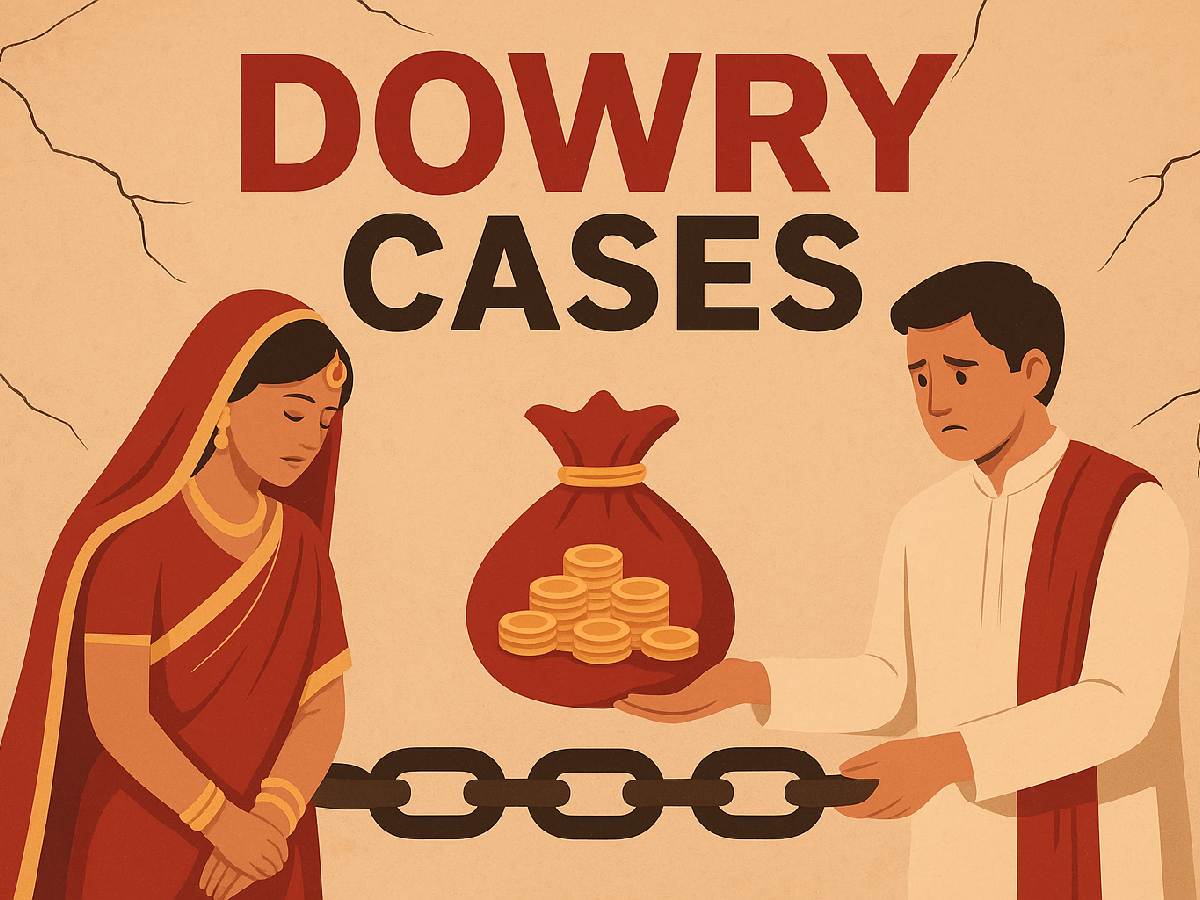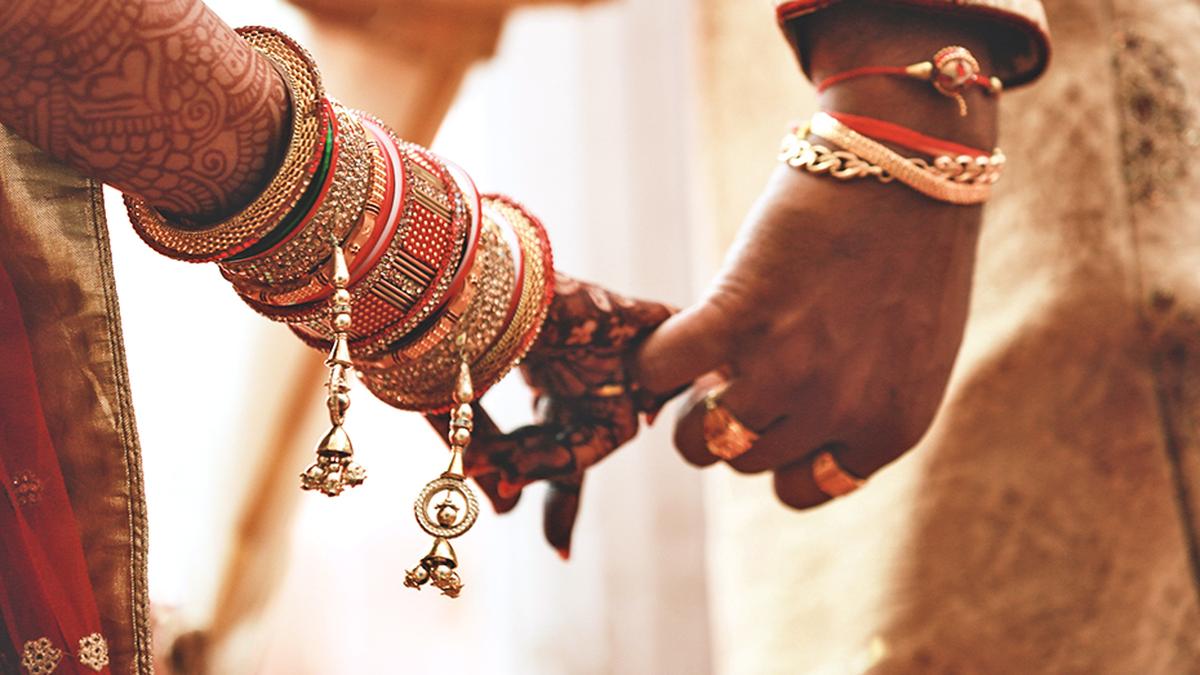Bengaluru has emerged as a disturbing hotspot for dowry-related complaints, reporting more cases in 2023 than the combined total of 18 other major metro cities in India. According to data released by the National Crime Records Bureau (NCRB), the city recorded an unprecedented number of dowry harassment cases, highlighting persistent social challenges despite legal provisions and awareness campaigns. The figures have raised concerns about societal attitudes towards women, enforcement gaps, and the growing urban stressors that may exacerbate domestic conflicts.
Experts note that rapid urbanization, lifestyle pressures, and migration of families for employment contribute to increased -related disputes in metropolitan areas like Bengaluru. With both partners often coming from diverse cultural backgrounds, misunderstandings around expectations and family obligations sometimes escalate into formal complaints. Authorities suggest that legal literacy, social counseling, and proactive intervention are crucial in curbing this trend while protecting vulnerable women.
The NCRB data also indicate that while the legal framework under the Prohibition Act exists, enforcement challenges persist. Women reporting harassment often face delays in action, social stigma, and resistance from family members, deterring many from seeking timely redressal. Officials stress the importance of strengthening the mechanisms for prompt registration of complaints, victim protection, and rehabilitation, along with sensitization of law enforcement personnel to handle such cases with empathy and efficiency.
Societal and Family Implications
disputes are not just legal issues but also reflect deep-rooted patriarchal norms and societal pressures in urban households.
Counselors and social workers advocate for awareness programs that engage both men and women to prevent conflicts and promote equitable family relationships.
Need for Strengthened Legal Enforcement
Authorities emphasize that timely registration of complaints, efficient investigation, and stringent judicial action are key to addressing dowry harassment effectively.
Community outreach and legal awareness campaigns are being recommended to educate families about the consequences of dowry demands and harassment.
Bengaluru’s rapid urbanization has contributed to the rising number of dowry cases. The city’s economic opportunities attract families from across the state and country, creating a mix of cultures, expectations, and socio-economic pressures. In some cases, these pressures manifest in heightened dowry demands, as families seek to maintain social status or secure perceived advantages in marriages. Experts note that the urban environment amplifies conflicts that might have been resolved informally in smaller towns or villages.
Migration patterns also play a role in dowry disputes. Families moving to Bengaluru often live away from extended relatives, reducing the support system that could otherwise mediate marital disputes. The isolation of nuclear families can intensify financial and emotional stress, increasing the likelihood of dowry conflicts escalating to formal complaints. Social workers suggest that community integration programs can help mitigate such risks for migrant families.
Economic disparity within the city contributes to dowry-related tensions. In urban centers like Bengaluru, there is a wide gap between affluent and middle-income families, which can lead to unrealistic expectations regarding marriage expenses and amounts. Couples from modest backgrounds may face coercion or harassment when unable to meet these demands, resulting in legal complaints and social conflict.
Education levels, surprisingly, do not always prevent harassment. Many cases involve well-educated women who are financially independent, yet face harassment due to societal expectations or familial pressure. Experts suggest that patriarchal attitudes often persist despite literacy, highlighting the need for targeted awareness programs that address gender biases and cultural norms alongside legal enforcement.
Social media and peer pressure have amplified expectations. Families may feel compelled to match perceived standards showcased by peers, relatives, or community networks. This phenomenon can increase stress on newlyweds and their families, sometimes resulting in early disputes and formal complaints to authorities. Analysts argue that social campaigns challenging such norms are crucial in changing attitudes.
Legal enforcement challenges remain significant in curbing dowry harassment. Many women hesitate to file complaints due to fear of social stigma, backlash from in-laws, or lengthy judicial processes. Even when complaints are registered, delayed investigation and trial proceedings can undermine confidence in legal remedies, emphasizing the need for faster, more efficient judicial intervention.
The role of law enforcement is critical. Police officers must be sensitized to handle dowry harassment complaints with empathy and urgency. NCRB data indicates that the number of cases in Bengaluru may reflect improved reporting mechanisms, but officers must ensure that investigations are thorough, timely, and unbiased to provide victims with tangible relief.
Community outreach programs have shown promise in preventing dowry-related harassment. NGOs and local organizations in Bengaluru conduct counseling sessions for couples and families before and after marriage, promoting awareness about legal rights and equitable practices. These programs aim to reduce reliance on legal recourse by resolving conflicts early through dialogue and mediation.

Addressing the Urban Dowry Challenge
The surge in dowry cases in Bengaluru also points to the need for comprehensive intervention strategies, combining legal action, social support, and education. Government and non-governmental organizations are exploring counseling services, women support centers, and mediation mechanisms to prevent escalation of disputes.
Social activists highlight that dowry-related cases, while reported more in metros like Bengaluru, are symptomatic of broader societal attitudes. They argue that urban affluence and social competition sometimes intensify dowry expectations, making educated, working women particularly vulnerable. Legal experts suggest that apart from enforcement, societal mindset change is essential to curb the practice effectively.
Community-based programs are being suggested as preventive measures, where local leaders, NGOs, and police collaborate to identify at-risk households, offer counseling, and monitor early warning signs of harassment. These initiatives can help reduce both the incidence and severity of dowry-related conflicts.
The rise in dowry cases in Bengaluru has also sparked debates around urban migration and its impact on family structures. Migrant families, often living away from extended relatives, may experience isolation and pressure, which can exacerbate domestic tensions. Experts propose that social integration programs and family counseling for migrant households can help mitigate these risks.
Officials have urged the judiciary and law enforcement agencies to prioritize dowry harassment cases, ensuring faster adjudication and protection for victims. Expedited trials, temporary protective measures, and dedicated helplines are being recommended as immediate interventions to safeguard women’s rights.

Awareness campaigns targeting men, especially young husbands, are seen as equally critical. Experts emphasize that addressing patriarchal expectations, financial pressures, and gender bias within the family unit is necessary to prevent dowry demands and related harassment.
In addition to enforcement, educational institutions and workplaces are being encouraged to play a role in discouraging dowry practices. Workshops, seminars, and media campaigns can promote gender equality, financial independence for women, and awareness of legal repercussions for dowry-related offenses.
Legal analysts note that data reporting is improving, which may partly explain the apparent surge in Bengaluru. More women are coming forward to report harassment, indicating growing trust in institutional mechanisms. However, the persistent high numbers suggest that deeper societal and systemic challenges remain.
Government and NGOs are exploring integrated models combining legal aid, financial counseling, and mental health support to provide holistic assistance to dowry harassment victims. These programs aim to empower women, reduce dependence on harmful practices, and facilitate social reintegration.
Finally, experts stress that while law enforcement plays a crucial role, the solution to dowry harassment ultimately lies in changing societal mindsets. Urbanization, economic development, and education must be coupled with cultural reform to reduce the prevalence of dowry and protect women’s dignity in Bengaluru and other metropolitan centers.
Financial literacy programs for both spouses are also being emphasized. Many dowry disputes arise from disagreements over money, expectations, and household management. Training programs for couples can provide tools to manage finances collaboratively, reducing the likelihood of harassment and misunderstandings that could escalate into formal complaints.
Experts highlight the need for urban policy interventions that address systemic causes of dowry harassment. Affordable housing, employment security, and social support networks for migrant families can reduce the stressors that often contribute to domestic conflicts. Strengthening urban infrastructure and social services may indirectly lower the incidence of dowry-related complaints.

The mental health impact of dowry harassment is profound. Victims often suffer from stress, anxiety, and depression, which can affect their overall well-being and productivity. Bengaluru-based counselors emphasize the importance of integrating psychological support with legal and social services to ensure comprehensive care for victims of dowry harassment.
Media coverage has played a dual role in shaping awareness about dowry cases. While increased reporting encourages victims to come forward, sensationalized coverage can sometimes exacerbate stigma and fear of public exposure. Experts recommend responsible journalism that highlights both legal recourse and social support mechanisms for affected families.
The private sector can also contribute to addressing dowry harassment. Employers and workplace networks can offer awareness programs, legal guidance, and counseling for employees facing marital disputes. Corporate social responsibility initiatives focused on gender equality can complement government efforts in reducing dowry-related harassment in urban settings.
Finally, cultural and religious organizations have a role in promoting equitable marriage practices. Community leaders can influence social norms and discourage dowry demands by advocating for ceremonies that prioritize consent, fairness, and mutual respect. Experts argue that sustained engagement by influential community members is essential for long-term cultural change in Bengaluru and other metropolitan areas.
Follow: Karnataka Government
Also read: Home | Channel 6 Network – Latest News, Breaking Updates: Politics, Business, Tech & More


